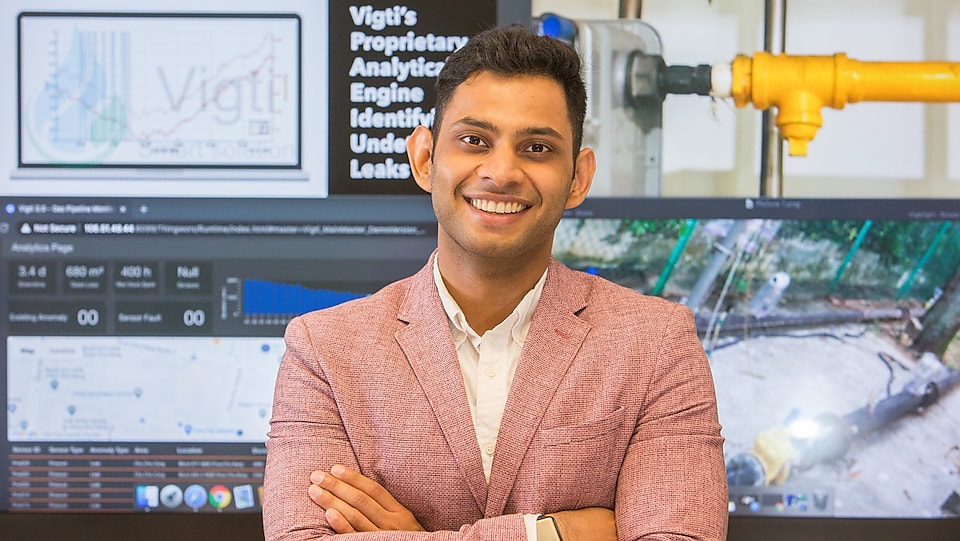
Vigti: Using AI to tackle gas loss and methane emissions
After working on a city gas distribution system, Ishaan Gupta was astonished to learn just how fragile the existing pipelines are. “Pipelines are susceptible to corrosion, third-party interference and natural disasters. This results in leakages which go undetected for months until they become catastrophic. This is the same system that our families and loved ones rely on for gas to power their homes! ” exclaims Ishaan.
By Vigti: Using digital ingenuity to tackle gas loss and methane emissions on Dec 01, 2020
“In fact, the very ground we are standing on might be leaking gas and the utilities may not even know about it!”, he continues.
The discovery led to Vigti, an end-to-end A.I.-based pipeline asset management software for the distribution of gas in a city. It addresses problems of gas loss, mitigate risks from leaks, and reduce unnecessary methane emissions.
The world’s population is expected to rise by a billion in 2030. Natural gas is one of the few energy sources that can meet the explosive demand for more energy while reducing greenhouse gas emissions compared to coal or diesel. Methane is its main ingredient.
In its natural state, it is also a greenhouse gas. Measured over a 20-year period, methane is 84 times more potent as a greenhouse gas than CO2, according to United Nations Economic Commission for Europe. Due to the production, processing, transport and incomplete combustion of oil and natural gas, leakages may occur resulting in methane escaping into the atmosphere.
By detecting gas leakages, Vigti hopes to reduce the unnecessary release of methane into our atmosphere. This will contribute to a more sustainable future.

The journey began in 2014 when Ishaan and his team were awarded a grant by the Energy Market Authority (EMA), Singapore’s energy market regulating authority. Their research was to enhance the reliability and resilience of Singapore's power infrastructure.
When the study was completed, Ishaan decided to scale up the technology globally with his team, which includes Professor Abhisek Ukil from the University of Auckland, Professor Justin Dauwels from the Nanyang Technological University and Dr Sungunakar Reddy. Vigti was thus born to investigate and solve rampant, undetected leakage issues that gas pipeline networks all over the world face, including Singapore.
Currently, Vigti is collaborating with Singapore Power to monitor gas leaks using its data. For Singapore to become a truly smart nation, its gas pipeline monitoring systems need to be digitalised, notes Ishaan.
He is looking to also deploy his solution in India and the United States. According to the Pipeline and Hazardous Materials Safety Administration (PHSMA), pipeline-related incidents in the US caused 12 deaths and left 28 injured just in 2019 alone.
“We believe it is our mission in life to secure these (pipeline) systems so we can protect our families and our environment at the same time. In every home is a family with kids, grandparents and possibly other extended family members. If we fail to monitor gas leaks, it might result in losing substantial number of innocent lives,” Ishaan asserts.
Looking ahead, Vigti is not content to just save gas pipelines. He shares this vision: “Any amount of energy that can be saved, is energy earned. Our vision is to improve operational efficiencies in every industry. Starting from gas, we plan to scale the system to protect water, crude oil, hydrogen and other pipeline networks.”